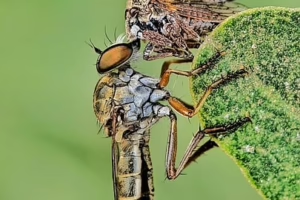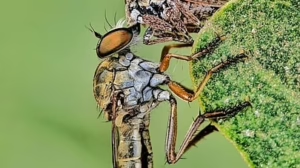A Love Letter to Mother Nature: Why We Should Cherish Our Planet
Introduction
In an era marked by rapid technological advancement and insatiable consumerism, it is easy to forget the importance of our planet. The ecosystems that sustain us are often taken for granted, and the beauty of natural landscapes can easily be overshadowed by the hustle of modern life. This article serves as a heartfelt love letter to Mother Nature, encouraging us to cherish and protect our planet. The intricate web of life that surrounds us is not just a backdrop to our existence; it is essential for our survival and well-being.
The Interconnectedness of Life
One of the stunning features of our planet is the interconnectedness of all forms of life. Each ecosystem plays a crucial role in the larger tapestry of our world. From the tiniest microorganisms in the soil to the largest mammals in the oceans, every species contributes to a balance that, when maintained, sustains life.
The Role of Biodiversity
Biodiversity, the variety of life in all its forms, is fundamental to the health of our planet. It provides ecosystem services that are vital to human existence: pollination of crops, purification of water, and regulation of climate, among others. According to the United Nations (2020), the loss of biodiversity poses one of the most significant risks to humanity. Protecting our natural habitats ensures that these essential services continue.
The Wisdom of Indigenous Cultures
Indigenous cultures around the world have long recognized the importance of living in harmony with nature. Their teachings often emphasize reciprocity, respect, and responsibility toward the land. These traditional ecological practices offer valuable insights into sustainable living. By learning from these perspectives, we can better appreciate the inherent value of nature and adopt more sustainable practices.
The Beauty of Our Planet
Majestic Landscapes
Our planet is filled with awe-inspiring landscapes that evoke a sense of wonder and tranquility. From the majestic peaks of the Himalayas to the sweeping plains of the Serengeti, nature’s beauty inspires us and nourishes our souls. Spending time in these environments can lead to numerous psychological and physical benefits, including reduced stress and increased creativity. According to studies, exposure to natural settings can lead to better emotional regulation and improved mental health (Kaplan & Kaplan, 1989).
Marine Wonders
The oceans, covering over 70% of the Earth’s surface, hold some of the most mysterious and beautiful ecosystems on our planet. Coral reefs, often referred to as the "rainforests of the sea," support an astounding diversity of marine life. Unfortunately, these precious ecosystems are under threat from climate change, pollution, and overfishing. If we continue to neglect our oceans, we risk losing not just marine species, but also the livelihoods of millions of people who depend on them.
The Dangers We Face
Climate Change
Climate change is one of the most pressing issues facing our planet today. As greenhouse gas emissions continue to rise, we are witnessing extreme weather events, rising sea levels, and shifting ecosystems. According to the Intergovernmental Panel on Climate Change (IPCC) (2021), urgent action is required to avert catastrophic consequences. It is imperative that we adopt sustainable energy sources, reduce waste, and limit our carbon footprints.
Pollution and Its Consequences
Pollution, whether it be air, water, or soil, poses a grave threat to our health and the health of our planet. The World Health Organization (WHO) estimates that millions of premature deaths every year are linked to air pollution alone. Moreover, plastic pollution has reached alarming levels, affecting marine life and entering our food chain. Approaches such as the circular economy and stricter regulations on waste are crucial for mitigating these impacts.
Habitat Destruction
Deforestation, urbanization, and industrial expansion have led to significant habitat destruction. This not only threatens the flora and fauna of these areas but also disrupts the services they provide to humanity. Sustainable land use planning and conservation efforts are essential to protect these habitats and the biodiversity they harbor.
Steps We Can Take
Individual Actions
-
Reduce, Reuse, Recycle: One of the simplest ways to minimize our environmental impact is to reduce waste. Adopting a more sustainable lifestyle—by reducing consumption, reusing items, and recycling—can significantly decrease the demand for new resources.
-
Support Sustainable Practices: Choose to buy from companies that prioritize ecological sustainability. Supporting local farmers and businesses can also lessen your carbon footprint while helping to preserve local ecosystems.
- Advocate for Change: Engage in community initiatives and advocate for policies that prioritize the environment. Whether it’s participating in local clean-up efforts or campaigning for greener infrastructure, your voice can effect change.
Collective Responsibility
We must also recognize that addressing environmental issues requires collective action. Governments, industries, and communities around the world need to collaborate to implement policies and practices that ensure the health of our planet.
-
Legislation: Governments must enact and enforce stricter environmental laws. This can include regulations on emissions, protections for endangered species, and incentives for renewable energy.
-
Corporate Responsibility: Companies should be held accountable for their environmental impact. By adopting sustainable business practices, they can contribute to the broader goal of environmental conservation.
- Education and Awareness: Education is a powerful tool for change. Raising awareness about the importance of environmental conservation can inspire action both at an individual and community level.
The Spiritual Connection
Nature has always played a critical role in the spiritual and emotional well-being of individuals. Many people find solace and inspiration in the natural world, allowing it to stimulate creativity and provide a sense of peace. Engaging with nature fosters a deeper understanding of our place within the larger system of life.
Nature and Mental Health
Mental health issues have become increasingly prevalent in modern society, with individuals often finding themselves disconnected from the natural world. Spending time outdoors—whether hiking, gardening, or simply walking in a park—can elevate mood, reduce anxiety, and promote overall well-being. Research indicates that short intervals spent in natural settings can significantly enhance mental health (Berman et al., 2012).
Nature as a Source of Inspiration
Artists, writers, and musicians have long drawn inspiration from nature. The complexities and beauty of the natural world have fueled creativity across cultures and epochs. It’s essential to nurture this connection, as it profoundly enriches human experience and expression.
The Call to Action
The plight of our planet is urgent, yet the solutions are within our reach. It is time for us to rise as caretakers of our environment, ensuring that future generations inherit a world teeming with life and beauty. Acknowledge the profound impact that each of us can have. Our daily choices, no matter how small, can collectively lead to monumental change.
A Shared Vision
A sustainable future is achievable if we unite in our commitment to safeguarding the environment. It calls for resilience, innovation, and the willingness to adapt. By fostering a shared vision of a healthier planet, we can inspire hope and drive meaningful change.
Conclusion
This love letter to Mother Nature serves as a reminder of the beauty, interconnectedness, and fragility of our planet. It urges us to recognize our role as stewards of the Earth and to adopt a lifestyle that respects and cherishes the natural world. By acting with intention, passion, and care, we can ensure that generations to come will be able to experience the wonder and beauty of our enchanting planet. So, let us come together to cherish and protect Mother Nature, honoring her gifts and securing a sustainable future for all.
References
-
Berman, M. G., Jonides, J., & Kaplan, S. (2012). The cognitive benefits of interacting with nature. Psychological Science.
-
Intergovernmental Panel on Climate Change (IPCC). (2021). Climate Change 2021: The Physical Science Basis. Contribution of Working Group I to the Sixth Assessment Report.
-
Kaplan, R., & Kaplan, S. (1989). The Experience of Nature: A Psychological Perspective. Cambridge University Press.
-
United Nations (2020). Global Biodiversity Outlook 5.
- World Health Organization (WHO). (n.d.). Ambient (outdoor) air pollution.

























Add Comment